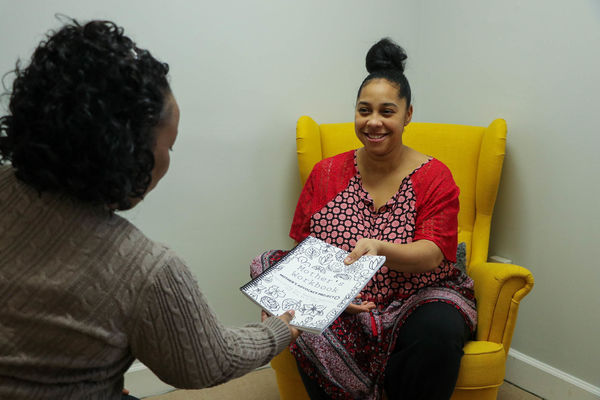Social distancing. Today, this phrase defines our lives. But here at LEO, we haven’t found ourselves socially distant. Physically distant, yes. Socially distant? Not at all.
If anything, we’ve grown more social, more empathetic, more human. We know our vulnerabilities aren’t unique. And we’re realizing that the strength of our social fabric and our compassion for the “others” in our lives matter immensely.
Our increased vulnerability has also been a wake-up call. As a society, we’ve gained a keen awareness of the needs and inequalities that plague our communities—and that we are often quick to tune out. In the age of the pandemic, material inequality often means life inequality. Rich or poor means life or death. Through it all, poverty persists. But so does hope.
Aristotle famously described vocation as the place where one’s greatest talent meets the world’s most serious need. Today, our world’s needs have deepened. And we have the opportunity to improve, to think smarter, and to grow more charitable in our attitudes and outreach. Now is the time to connect fully with the people and work that bring our lives meaning. It’s also the time to focus on bringing safety, meaning, and opportunity to those who need them the most. LEO’s service provider partners are doing just that.
They’ve never backed down from inequality. Or crises. Or poverty. We’re humbled by the response of our partners to the significant challenges of COVID-19. During times like these, research may seem like a luxury. But our partners remain fiercely committed to building evidence. We know our work together has always been important. But with the economic hurdles that continue to complicate and intensify poverty, we know it’s now more important than ever.
So we’re following our partners’ lead. We’re adjusting, but we’re not stepping aside. Take Megan Mortensen from the Chicago Jesuit Academy. She’s working to ensure the academic success and well-being of one of the hardest-hit communities—low-income students. And her team is in the midst of designing an impact evaluation with LEO researchers.
“This has been a project we have been working on for a long time, and we think it’s going to make a big impact on students in Chicago,” said Meg. “It’s an awkward time, but the need is still there, and this will help us improve our impact.”
The students of Chicago Jesuit Academy have transitioned their studies online. Still, not every student has internet access, and many have assumed additional family responsibilities as their parents fight on the frontlines.
But the team at the Chicago Jesuit Academy is responding. Donors and staff members are coming together to help the families in the greatest need.
“We’re delivering snacks and meals to families’ homes, and we’re distributing hot spots and Chromebooks to students who wouldn’t otherwise have access.”
Chelsea Sabo, the founder of Foster Care Alliance in Atlanta, Georgia expressed a similar resolve. Though her team is working around the clock to meet clients’ needs and move their services online, the staff at Foster Care Alliance is also rolling out a research design in partnership with LEO.

“Research isn’t a luxury. For us, it’s essential,” she said. “It helps us know whether or not what we’re doing is working or efficient. The people we work with deserve to have quality outcomes and a quality product.”
And in spite of the challenges they’re facing, the Foster Care Alliance team has also learned to pivot their services in order to have the greatest impact.
“My team is absolutely amazing,” said Chelsea. “It’s been incredible to see who has risen to the top.”
Karla McCullough, the Executive Director of the JSD Foundation in Jackson, Mississippi, runs a mentorship program for low-income youth who are disproportionately affected by COVID-19. In addition to mailing mentorship curriculums to families and developing a mentoring app that youth can use to stay engaged, they’re also firmly committed to building evidence.
“Having an evidence-based mentoring program is even more vital today,” she said. “The youth we serve will likely emerge from this crisis with post-traumatic experiences that a mentoring program like ours will help to minimize the impact of in their daily lives.”
At LEO, we’re taking our inspiration from our partners—they’re turning today’s challenges into opportunities. Together, we’re leaning heavily into our vocations, our missions. And we’re leaning into each other. We’re all-in. With our partners at the helm, we’re venturing bravely on the uncertain road ahead. Because this fight is worth it.